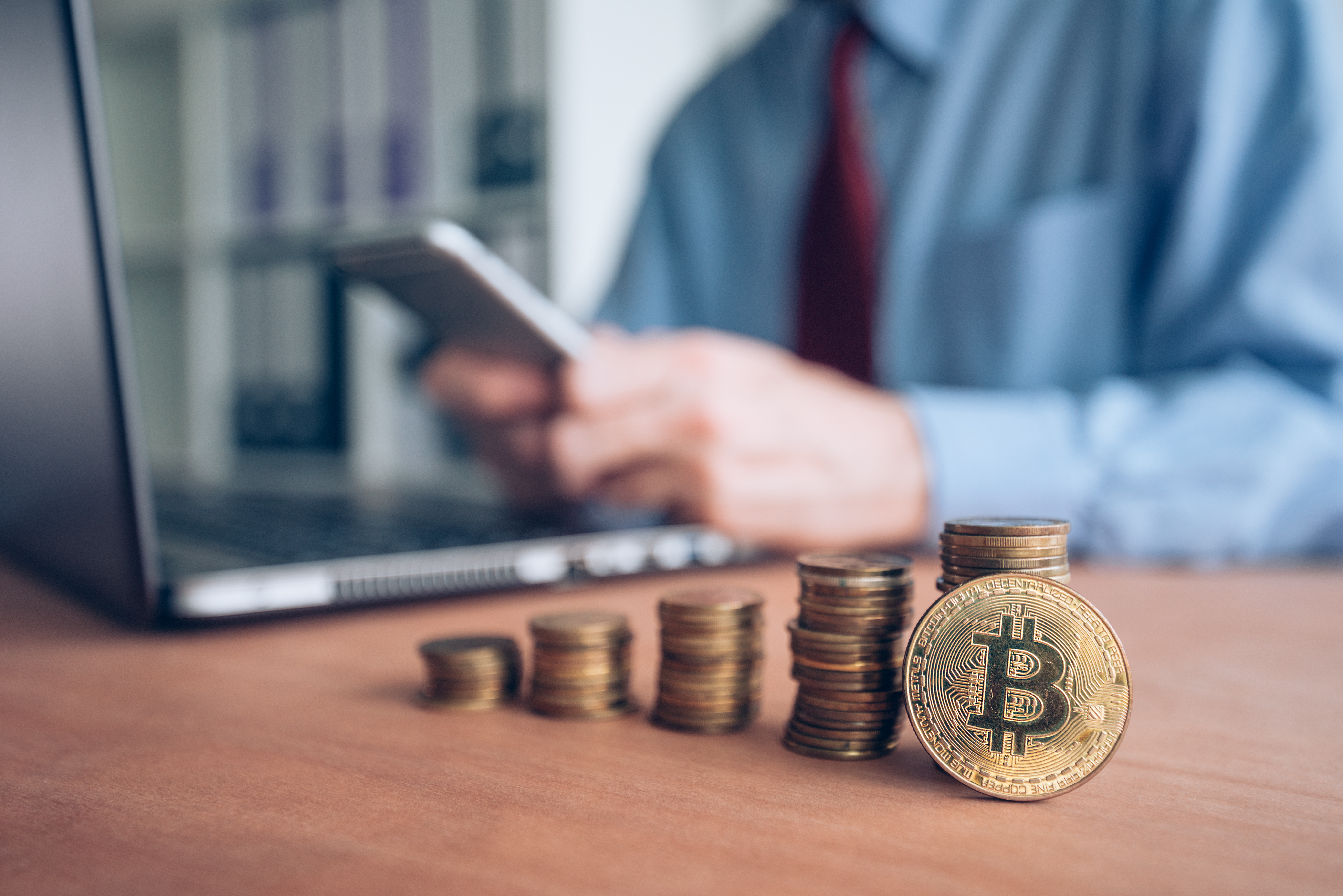What You Need to Know About Bitcoin Brokers
Disclaimer: The text below is an advertorial article that was not written by Cryptonews.com journalists.

It all started in 2009, and in twelve years, Bitcoin has grown in leap and bounds. Today, Satoshi Nagamoto’s creation is the undisputed world’s largest cryptocurrency in popularity, adoption, and capitalization.
Not that you don’t know the heroics of Bitcoin, but let’s remind you that it peaked at an all-time high of over USD 64,000 in April 2021. Now predictions are rife that the price of the world’s first decentralized ledger system might reach USD 100,000 before the end of 2021.
To know more about the price prediction of Bitcoin, bookmark CoinJournal on your devices.
Who is a Bitcoin Broker?
In simple terms, a broker has the job of mediating between traders and the market. When using a broker, you deposit funds into their account and utilize the products available for your trades.
Brokerage is usually intended for a higher amount of funds due to the level of security and liquidity it offers.
With the surge in the adoption of Bitcoin and other cryptocurrencies, the interest in trading is on the rise. There are two effective approaches to speculate Bitcoin prices, either through a broker or an exchange. Trading through a Bitcoin broker means there will be a lot of other options, including derivatives. Unlike through an exchange where you speculate only on the price movement.
Using a bitcoin broker, you actually don’t own the Bitcoin; instead, they buy and sell Bitcoin derivatives. These derivatives products can be options, regular futures, non-deliverable forwards, leveraged tokens, and perpetual futures.
Bitcoin Brokers Vs. Bitcoin Exchange
There is usually a comparison of the differences between a Bitcoin broker and an exchange. The following are the significant differences that exist between bitcoin brokers and exchanges;
- Ownership
This is the underlying difference between the two; while bitcoin brokers offer derivatives without any form of ownership, the changes grant you ownership of the derivatives. In essence, brokers cater to the needs of investors while exchanges meet the needs of traders.
- Variety of Assets
Another distinguishing difference is the number of assets available. For most brokers, the focus is on, let’s say, the top ten assets based on market capitalization. However, for exchanges, there’s an innumerable number of cryptocurrencies and digital assets available.
- Spread
It is no secret that spreads at Bitcoin brokers are usually higher, and this is because it costs the brokers to place trades on your behalf, and a spread is relied on to cover the broker’s cost for carrying out orders.
While on exchanges, you open and close positions on your own without any external inputs.
- Target Audience
Lastly, one other noticeable difference is the intended audience. Bitcoin exchanges are meant for HODLers into mid to long-term investment, while speculative traders and investors majorly use brokerages into it for the short term.
How to Choose a Bitcoin Broker
The number of Bitcoin brokers is increasing in the crypto space, creating a challenge for most investors. One thing we are sure of at CoinJournal is that no two brokers are similar.
To make it easier for you to make a decision, we’ll be giving a few pointers on what to look out for in a Bitcoin broker;
1. Commissions and Trading Fees
You should know that all Bitcoin brokers are in it for the money, and there’s always going to be a fee for using their platform. You should be interested in pitching your tent with Bitcoin brokers with low fees to maximize your profits.
2. Trading Volumes
A high level of liquidity is a common denominator of Bitcoin brokers, and this is why you have to choose a broker that allows for a high level of liquidity. In so doing, you will be trading at competitive market prices, and else, you might struggle to trade without sufficient volumes of trade.
3. Available Derivatives
Do your homework, ensure that your preferred Bitcoin broker has quite a number of derivatives on offer. You don’t want to be stuck with few trading options. Look through the broker’s website and see what’s available.
4. Security
While Bitcoin brokers are known for state-of-the-art security systems, you need to be sure that they abide by the best security practices. Hackers and scammers are always targeting brokerages; you need to ensure that your investment is in safe hands.
5. Minimum Deposit and Withdrawals
Lastly, one other deciding factor should be the minimum deposit and withdrawal value. Look through the T and Cs of a Bitcoin broker, ensure that this aligns with the size of your trading capital.
Wrap Up
Now that you understand how Bitcoin brokers work, you will be doing yourself a great disservice not to use the right ones as an investor. Always choose a Bitcoin broker that offers you the right tools and service you need as an investor.
When in doubt, you can always come back and reread this piece. We are interested in helping you stay informed and educated about cryptocurrencies.



